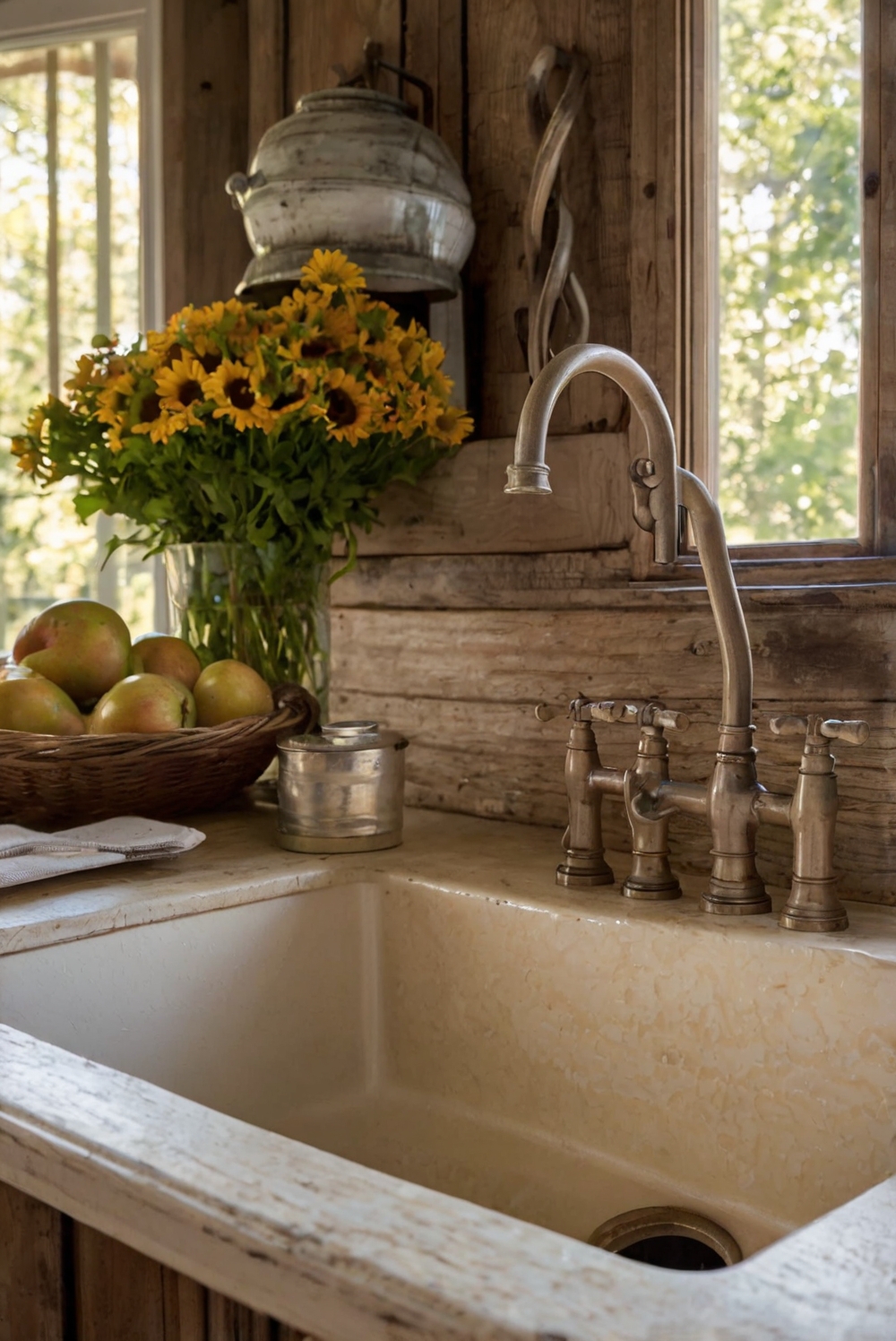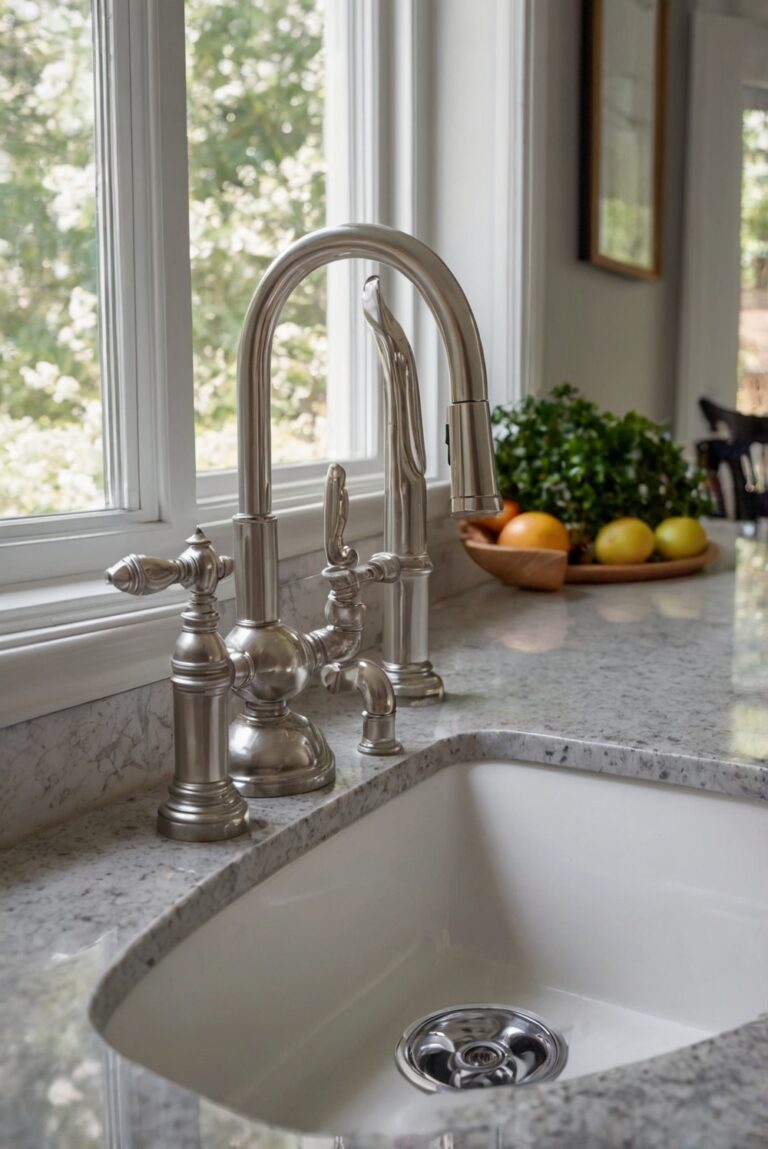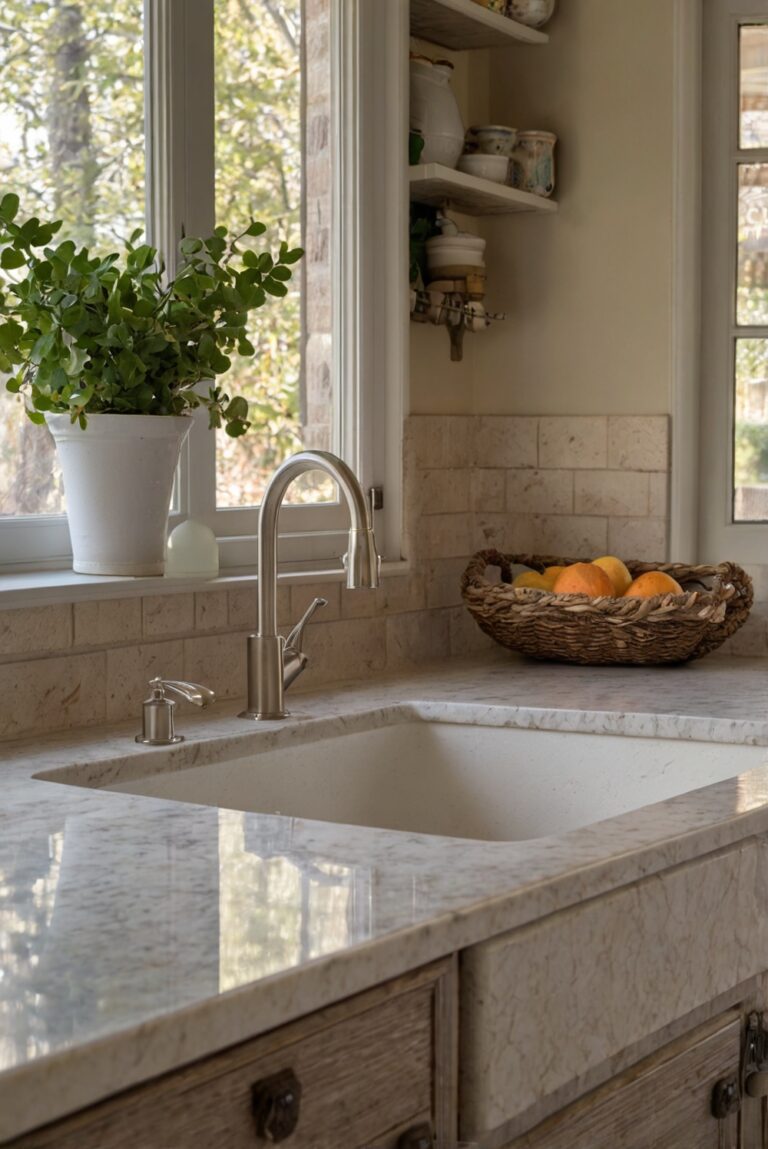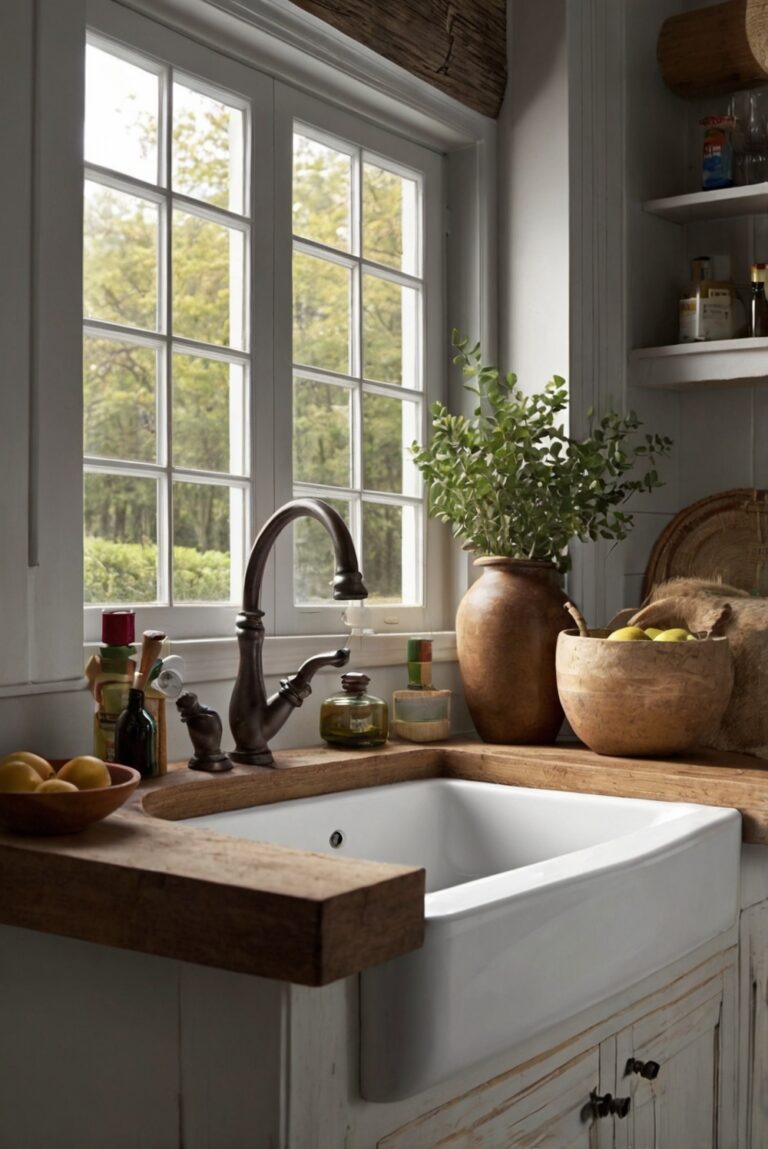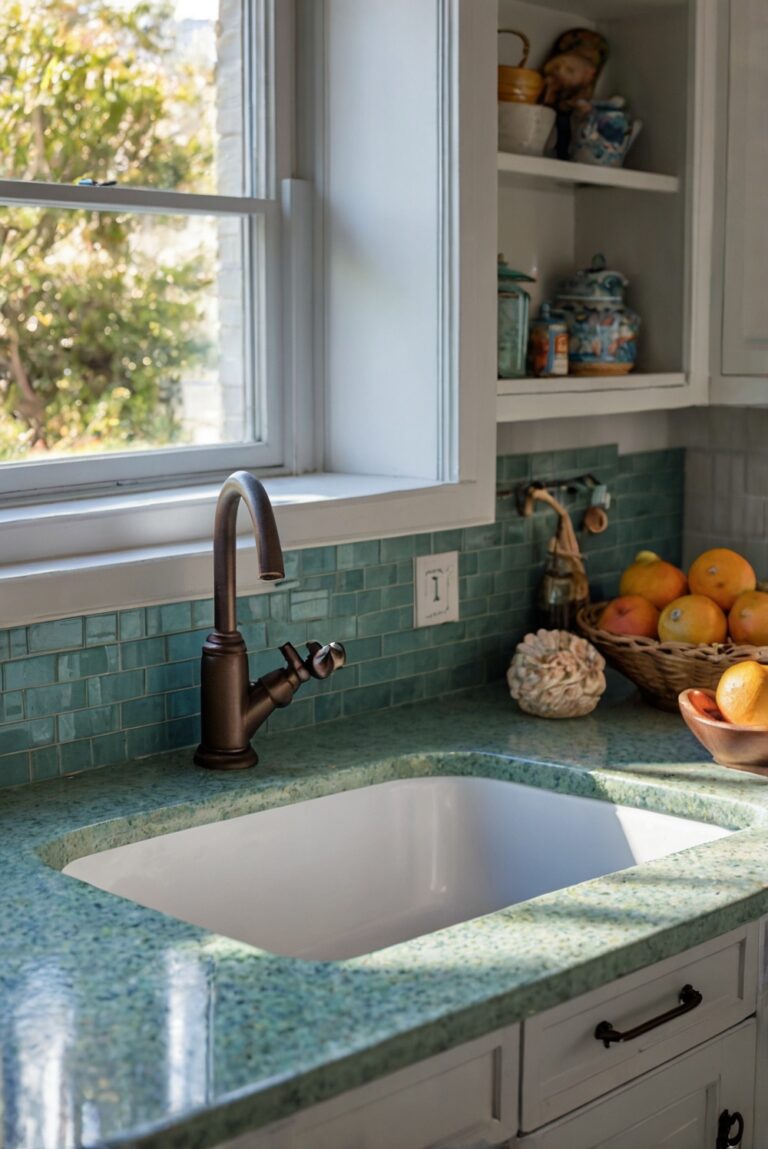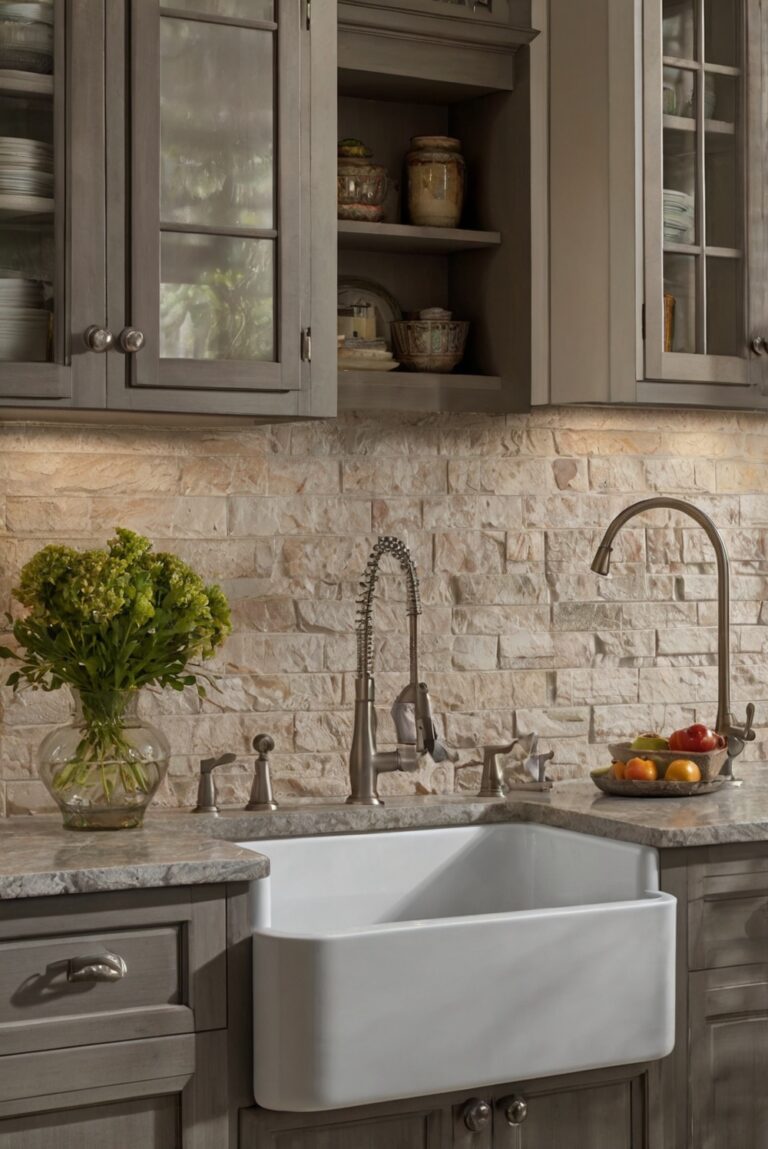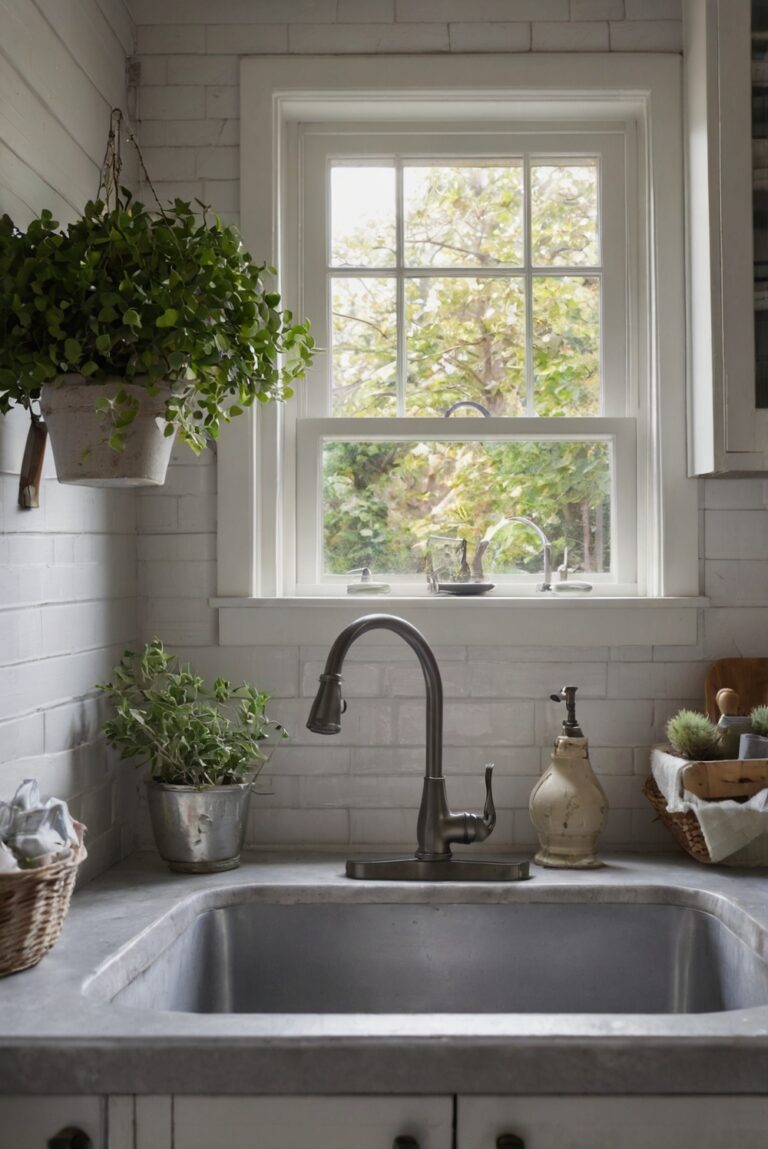Explore the top sink options for creating the rustic kitchen of your dreams. Dive into the best choices for adding charm and functionality to your space.
**
What Are the Best Sink Options for Rustic Kitchens?
**
**
Farmhouse sinks
** are the ideal choice for rustic kitchens as they bring a charming, country feel to the space. These sinks typically have a large, deep basin that is perfect for washing large pots and pans, and their exposed front adds to the kitchen’s rustic appeal.
In addition to farmhouse sinks, **
copper sinks
** also complement rustic kitchens beautifully. The warm tones of copper add a touch of luxury to the rustic decor and develop a beautiful patina over time.
When choosing a sink for a rustic kitchen, consider the overall style and color scheme of the space. Farmhouse and copper sinks are not only aesthetically pleasing but also durable and practical choices for a home decorating project.
What Are the Best Sink Options for Rustic Kitchens?
Farmhouse Sinks:
Farmhouse sinks are an essential element in rustic kitchens due to their timeless and classic appeal. These sinks typically feature a large, deep basin that can accommodate pots and pans, making them perfect for rustic cooking. The exposed apron front adds a charming touch to the kitchen and blends seamlessly with the rustic aesthetic.
Copper Sinks:
Copper sinks are another popular choice for rustic kitchens. The warm tones of copper add a luxurious and rustic feel to the space. Over time, copper develops a unique patina that enhances its beauty and character. Copper sinks are also durable and resistant to bacteria, making them a practical choice for a busy kitchen.
Stone Sinks:
Stone sinks, such as granite or marble, are elegant and durable options for rustic kitchens. The natural beauty of stone adds a touch of sophistication to the space while complementing the rustic design. Stone sinks are also resistant to heat, stains, and scratches, making them a long-lasting investment for your kitchen.
Stainless Steel Sinks:
Stainless steel sinks are a modern twist on rustic design. While they may not have the same warm and traditional feel as farmhouse or copper sinks, stainless steel sinks offer durability and easy maintenance. They are also affordable and come in a variety of styles to suit your rustic kitchen decor.
Fireclay Sinks:
Fireclay sinks are another popular choice for rustic kitchens. These sinks are made from a blend of clay and glaze, creating a durable and timeless option for your kitchen. Fireclay sinks are resistant to stains, chips, and scratches, making them ideal for everyday use in a rustic setting.
In conclusion, when choosing the best sink for your rustic kitchen, consider factors such as design, durability, maintenance, and budget. Whether you opt for a farmhouse sink for its classic charm, a copper sink for its luxurious appeal, a stone sink for its elegance, a stainless steel sink for its modern twist, or a fireclay sink for its durability, each option brings its unique benefits to enhance the rustic look of your kitchen. Make sure to choose a sink that not only complements your design aesthetic but also meets your practical needs for a functional and stylish kitchen space.
1. What are the best sink options for rustic kitchens?
When it comes to rustic kitchens, farmhouse sinks are a popular choice due to their charm and practicality. These sinks typically have a large, deep basin that can accommodate large pots and pans, making them perfect for a busy kitchen. Another great option for rustic kitchens is a copper sink, which adds a touch of warmth and elegance to the space. Additionally, stone sinks, such as granite or marble, can complement the natural elements of a rustic kitchen beautifully.
2. How do I choose the right sink for my rustic kitchen?
When choosing a sink for your rustic kitchen, consider the overall style and design of the space. Farmhouse sinks work well in traditional rustic kitchens, while copper sinks can add a touch of luxury to a more modern rustic design. Additionally, think about the size and functionality of the sink – a deep basin and durable material are essential for a busy kitchen. Don’t forget to consider the maintenance requirements of different sink materials to ensure your choice will stand the test of time.
3. Are there any specific materials that work best for sinks in rustic kitchens?
In rustic kitchens, materials like copper, stainless steel, and stone are popular choices for sinks. Copper sinks add a warm, rustic touch and develop a beautiful patina over time. Stainless steel sinks are durable and easy to clean, making them a practical option for a busy kitchen. Stone sinks, such as granite or marble, can bring a natural element to the space and complement other rustic features like wood and exposed beams. Ultimately, the best material for your sink will depend on your personal style and the overall design of your rustic kitchen.
4. What are some important factors to consider when installing a sink in a rustic kitchen?
When installing a sink in a rustic kitchen, it’s essential to consider the layout and flow of the space. Make sure the sink is easily accessible from the cooking and prep areas to streamline your workflow. Additionally, choose a sink that fits the size and style of your kitchen – an oversized sink may overwhelm a small rustic kitchen, while a small sink may not be practical for a large, busy space. Finally, consider the installation process and any additional features you may want, such as a built-in drainboard or space-saving design.
5. Can you provide some tips for maintaining and caring for a sink in a rustic kitchen?
To keep your sink looking its best in a rustic kitchen, regular cleaning and maintenance are essential. For copper sinks, use a mild soap and water to clean, and avoid harsh chemicals that can damage the patina. Stainless steel sinks can be cleaned with a gentle scrubbing pad and water, followed by a stainless steel cleaner to restore shine. Stone sinks should be sealed regularly to prevent staining and maintain their natural beauty. Additionally, avoid leaving standing water in the sink and wipe down the surface after each use to prevent water spots and mineral buildup.

